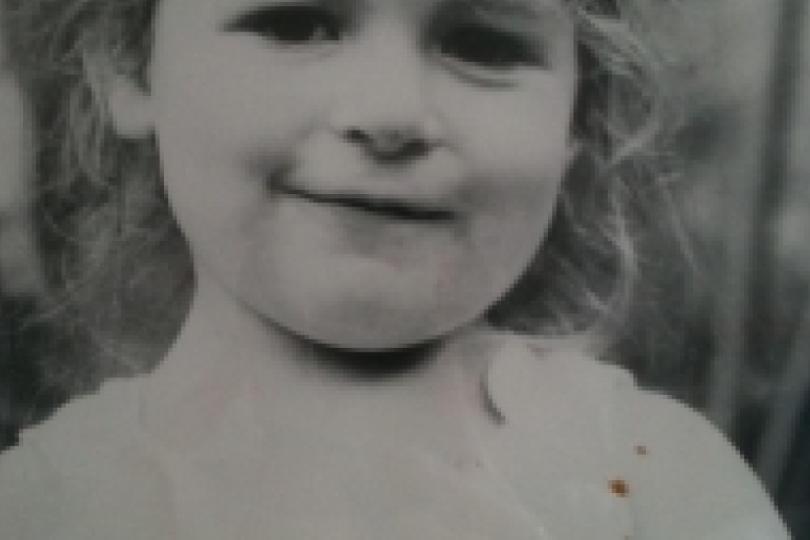Winter Comes to Town
Editorial

Plays are like food, they feed so many souls. —Winter Miller, email
Part I. The weird section common to profiles in which the author gives random descriptors of the subject and subject’s lovely home and often subject’s pet with the intention of making the subject sound both more “accessible” and more astonishing.*
Actually I will have to skip the part where I describe Winter Miller’s house, because I have never been there, and because Winter and I have switched spots on the map and in the time-space continuum. It’s 3:21 a.m. in New York, where I am presently, and where Winter lives. She is in Minneapolis presently, where I live, and I’m pretty sure she’s sleeping, because she hasn’t texted since she wrote, “I want my article in Latin cognates. Por favor.” I said I would write in the pluperfect or nothing, turned off all the lights in my motel room and listened to the sound of Winter shouting over the hideous music that was playing in the coffee shop this morning when we met.
*Winter is in fact accessible** and astonishing.
**She would like me to make it clear that her plays are also accessible.+
+Which they are. They are also astonishing.
Part II. Facts about Winter, none of which speak to her plays
She is one of the funniest women I have ever met, and dances around language like it’s something dangerous she’s mostly tamed. She owns a cat named Gato. Gato owns a coat and leash. I have been instructed to retrieve Gato from New York and bring him to her asap. Gato was the subject of the majority of photos she sent me in lieu of a headshot—usually a simple request—photos sent with the subject line, “This is not me.” There was also a photo of a dead squirrel, one of Luke Skywalker, and one of her, subject line “This is me,” circa 1976, when she was three; the photo shows her wearing a pretty snappy watch and a tiny “Sisterhood is Powerful” shirt. Raised by pacifist feminists, given a name intended to be both gender-neutral and a good byline, Winter has swept into Minneapolis on a cold wind, insufficiently sweatered but possessed of a pink hat with earflaps and tassel, to workshop her play THE ARRIVAL in this year’s Playlabs Festival.
Winter [texting from the Playwright’s Center]: My play is in chronological chaos. I had to stand on my head in rehearsal to get a sense of things.
Winter stands approx. 5’2.5”, whether upright or inverted, and plays a good game of pool. When I picked her up to go to the interview, she brought along a book of poems to show me. I offered her half a cookie. She seemed to think this was an acceptable trade.
Winter is a person who takes enormous delight, I think, in being alive.
III. The part where I point out proof of how astonishing Winter is, professionally speaking.
Her plays have been extensively produced; she has won a host of awards, fellowships, &c.; she is a regular feature at the most prestigious residencies around the country; these things may be relevant to her, but she does not mention them in conversation, and I suspect they do not occupy much of her time or mind. Instead, she refers to the time these measures of success afford her to write as grace.
IV. On grace
In the course of our conversation, she uses the word grace five times. This is not because she lacks vocabulary. Her vocabulary is absurdly extensive, as is her knowledge of pronunciation, spelling, and French references: I was corrected, quite rightly, on “synecdoche,” “boatswain,” and “in dishabille.”
She uses the word grace because she sees it everywhere, flashes of it, glimpsed from the corner of the eye. It permeates her plays, even as her plays take up sometimes painful moral questions, even as she occasionally battles her work, her characters, herself, the world, even as she crosses oceans and continents and cultures to do humanitarian work that raises those moral questions in her that then travel from her to her work to the world; there is that word grace, to which she returns and returns, tapping it like a touchstone that reminds her of something she needs to know.
She announces to the barista that while she waits for her coffee, she will simply dance, and then she does.
V. The part where I just set down what Winter said, because she is more than capable of speaking for herself
On why she writes plays:
I want to change the world so I write plays.
But why plays:
What I am drawn to with playwrighting is that the story is not beholden to facts. A play is beholden to an authentic emotional truth. I think it’s what draws me. That any fact could exist. Anything is possible. It only takes one instance of it to be true. And I’m pretty sure every story has already been told, in terms of archetypes and scenarios…so it’s the expression of emotion that seems to be a frontier of exploration.
On exploring that frontier:
I came to writing through acting, as many people do. And once I realized what it took to be an actor—you know, the kind of availability—that I had to actually open up from the neck down—I realized that I wasn’t going to have access to it. And so writing plays—at least I understood that if I could find access to it, at least on some occasions, I could bring that, I could start there.
Really, what I have to do is open. And stop resisting. There’s always a resistance. My intention is to make myself completely available, and I succeed in various ways at various times. And that journey can be frustrating when I realize I’m inaccessible. But in terms of bringing myself—if I’m not going to bring myself, then I’m not going to write. And if another artist is not going to bring themselves, I don’t want to show up. I don’t engage. So when people show up, it is the most generous gift.
I mean, it is life.
More specifically, what interests her in plays:
I’m mostly interested in the journey of identification and catharsis. I think the purpose of art is to reflect and comment on the human condition—or maybe not the purpose, but the beauty—that it is more than aesthetics. Aesthetics are enough. but if you can have this tension of who am I to this, and who is this to me, then that’s what I’m interested in.
On identification and catharsis in THE ARRIVAL:
This is an unusual play for me. Because mostly my intention with a play is to have a moment when the viewer has his or her heart broken; the moment when you crack something open, then you have room for compassion and identification.
This isn’t a play where I have a moment where people crack open, because these people are so shut down, they’re so sealed off. So my intention in this play is not for people to say, What would I do in this situation? but that we get in touch with our own feelings of anxiety.
On whether an audience wants their heart broken by a play:
No. Audiences are drawn to plays because they are drawn to the playwright or because the play got a good review—audiences don’t walk into a play knowing their heart is going to be broken, and if they do, they’re much less apt to go see that play. They expect to go home and have their life be pretty much unchanged. Whereas I’m sort of curious about the energy that happens during and after. How are you changed after seeing a thing?
On whether it is catharsis or information in a play that has the capacity to create change:
You can teach and people won’t hear. But when you have catharsis, and make an actual connection, then it’s in someone, then they behave differently. But if you don’t reach someone, all you’ve done is gone in one ear and out the other. It’s more didactic and more of a sermon, and something you might return to intellectually. But I also think creating change is difficult intellectually. I think it needs to come from a space in the heart that says, “I will not stand for this,” or “I must do something.”
On her comment, in passing, that there is something critical about things in a play which are “wordless, beyond language, beyond touch”:
What matters to me—and I think this play addresses it –is that it’s about negative space. It’s about cadence. The overlap of dialogue, the chaos of thought as it comes pouring out—it’s vibrating.
On the opening moments of her play In Darfur which illustrate that negative space, essentially created by a lighting cue that shows the protagonist, a refugee, after she’s buried her dead, walking and walking across a stage covered with black sand. The opening of the script is almost all stage directions:
Because there were no words to say, “I’ve lost my family, I’ve lost everything, I don’t know where to go, I’m in danger, I may be killed at any moment.” So I wrote the stage directions as a way of painting what it would be, and then waited for the people around me to fill in that universe.” [As the lighting shifts into a blue pre-dawn light], I feel like that’s the moment that we fall in love with the character. There are no words.
On the matter of falling in love with the characters in THE ARRIVAL, or not:
I don’t know that we ever fall in love with those characters. I’m not in love with them. I’m at war with them. They showed up, and I didn’t invite them. They make me say things that I don’t want to say, and do things that I don’t want to do. My heart hurts talking about it. Spending time with them—it’s hard. There is a place that I will grow to understand that I love them; but I will have to fight with my resistance. I have to love that piece of myself; whereas I’ve just been exploring the parts of myself where I say, “Oh look! I’m broken. I’m violent.”
On violence and its place in THE ARRIVAL:
I’ve been really interested in violence, in how taboo it has been for me. I thought of myself as someone really working toward peace, and I still feel that way, and do a lot of work that’s around bridging gaps and trying to connect others. But in doing that I eclipsed my own capacity for violence. [When that was recently challenged in her own life] it opened up something huge for me, because it meant that I can have both. I can have this intense desire to love, and protect, and also a very realistic part of me that is capable of destruction, and is honest about that.
While I was having that journey, I was also thinking about extremism and terrorism and how politics can be divisive….And we also foment mass dissatisfaction, and that leads to violence. I found that I had all these unresolved issues, and all this fear, but no forum in which to talk about it, because I think most of us are terrified, and so what do we do with that? We suppress it. So this play is an attempt to actually feel that anxiety. Not to resolve it but to say, “This is here.”
If my thoughts of love reach people, then don’t my thoughts of destruction? I don’t know how to be good in the world and be me. And to be good in the world and not be that is false. I thought I could just be a construct. And so that dialogue was related to the question this play raises, of “Are these people inherently evil?” No. And wouldn’t I be just like them? Yeah, I might. Why not.
On her reference, in earlier conversation, to the writing that “illuminates the shards of people who live inside me,” and what is illuminated by this new play:
I suppose the dance of connection. How hard it is to trust. For these people, their lives are at stake. But for me, that notion of trust and intimacy is somehow the same stakes. It’s also a desire to be forgiven. I think about Batty [character in ARRIVAL] whose life is built around atonement, but not with a desire to be forgiven—with a desire to pay and pay and pay—and I suppose my own desire is to be permitted to make mistakes, ask for forgiveness, and be forgiven.
[Pausing in the interview:
Winter, pressing her chest: My heart hurts. This is hard.
Interviewer [me]: Do you want to take a break?
Winter: I feel a strong need to be upside down.
[We go outside, look for something against which she can do a handstand, and find a suitable tree. She does the handstand. Stays there quite a while, happily chatting. Drops her feet to the ground, shakes herself out. We go back to complete the interview.]
On theater as ritual and sacred thing:
It’s a group of people who all gather for a message, for an experience, and it is in the best light transformational. So that feels sacred. The expression of genuine emotion to me is sacred. And when you can do that and leave talking about it and dissecting it and layering it, then it continues and broadens and opens up the sacred space.
On what she thinks may come next:
I want to do a project on forgiveness. I think that will be an emerging theme. Darfur’s about resilience and survival and morality; this play is about destruction; so I think forgiveness is on tap. And it’s a thing I’m trying to figure out in myself: How do I learn to forgive?






